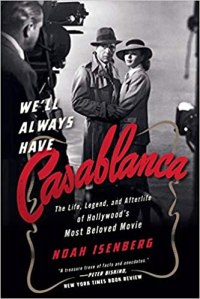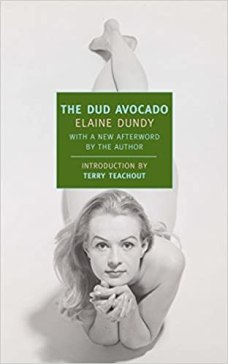Thanks to the collective corona cloistering, I’ve been ordering books online, greedily. With libraries and bookshops closed, I’m buying used books from third-party sellers on Amazon and new titles from New York indie institution McNally Jackson.
Unquenchably, I’m ingesting words in the yawning vacuum of self-quarantine. Reading is nearly as nourishing as food. This is what’s on my literary plate.

I met “Birds of America” author Lorrie Moore at a book signing for that acclaimed 1998 story collection, and she wasn’t the most jolly person in the room. She was frosty to her gathered admirers, but I don’t hold that against her. Moore’s edge informs her tart, smart fiction, which is also infused with emotional immediacy and pocked with laughs. With stories like the award-winning “People Like That Are the Only People Here,” the book is a contemporary classic that hasn’t aged a whit.
Death looms these grim days, though mortality is always on the mind of this moody Cassandra. Long ago I read the updated edition of “The American Way of Death,” Jessica Mitford’s definitive 1963 exposé of the funeral racket, and I’m back at it, if not for the dazzling reportage and head-shaking stats — upshot: funeral peddlers are exploitative swindlers — then for purely great writing that makes a dismal subject pop. The book is not only essential muckraking, but lavish literary satire, nipping at a venal industry with the toothy, pit bull wit of Pauline Kael. This tangy volume is one big reason I will be cremated and thrown to the wind.

 While rereading books like the above, I’m also rewatching some favorite flicks, including “Casablanca,” the evergreen masterpiece in which every element of fine filmmaking miraculously falls into place. I love a good movie book so I clicked on Noah Isenberg’s “We’ll Always Have ‘Casablanca’: The Legend and Afterlife of Hollywood’s Most Beloved Movie,” the gawky title of which tells you just what you’re delving into. I haven’t cracked it yet, but I’m hoping for historical Hollywood gold on par with the recent knockout “The Big Goodbye: ‘Chinatown’ and the Last Years of Hollywood.”
While rereading books like the above, I’m also rewatching some favorite flicks, including “Casablanca,” the evergreen masterpiece in which every element of fine filmmaking miraculously falls into place. I love a good movie book so I clicked on Noah Isenberg’s “We’ll Always Have ‘Casablanca’: The Legend and Afterlife of Hollywood’s Most Beloved Movie,” the gawky title of which tells you just what you’re delving into. I haven’t cracked it yet, but I’m hoping for historical Hollywood gold on par with the recent knockout “The Big Goodbye: ‘Chinatown’ and the Last Years of Hollywood.”
Dreaming about Paris, I tripped upon the site for fabled English-language bookshop Shakespeare and Company, that grand, musty emporium on the Left Bank, where I scrolled staff recommendations for Paris-set stories. Never mind its racy cover, I was lured to Elaine Dundy’s cult comic classic “The Dud Avocado,” a romp tracing the libertine escapades of a comely young American woman in the French capital who yearns to exist out loud. Called a “timeless portrait of a woman hell-bent on living,” the novel seems unlikely to disappoint this thwarted traveler pining for Paris.  On the note of cult classics, “Airships,” Barry Hannah’s award-winning collection, promises “20 wildly original, exuberant, often hilarious stories that celebrate the universal peculiarities of the new American South.” The book hasn’t arrived yet, but it’s highly anticipated after being called “one of the most revered short story collections of the past 50 years, remaining a vital text in the history of the American short story.” And this snippet from it makes me sort of love it already: “What a bog and labyrinth the human essence is … We are all over-brained and over-emotioned.”
On the note of cult classics, “Airships,” Barry Hannah’s award-winning collection, promises “20 wildly original, exuberant, often hilarious stories that celebrate the universal peculiarities of the new American South.” The book hasn’t arrived yet, but it’s highly anticipated after being called “one of the most revered short story collections of the past 50 years, remaining a vital text in the history of the American short story.” And this snippet from it makes me sort of love it already: “What a bog and labyrinth the human essence is … We are all over-brained and over-emotioned.”
 Raymond Chandler’s crackling and complex detective noir “The Big Sleep” scorches with style. The novel, a total delight, introduces private eye Philip Marlowe, literature’s great existential antihero, a shrugging loner with a gun, cigarettes and devastating wit. Chandler crams it with so many ravishing lines, images, similes, he elevates pulp to high literature. Marlowe, all slow-burn aplomb, speaks and thinks like the consummate smart-aleck tough: “I don’t mind if you don’t like my manners,” he grumbles. “They’re pretty bad. I grieve over them during the long winter evenings.”
Raymond Chandler’s crackling and complex detective noir “The Big Sleep” scorches with style. The novel, a total delight, introduces private eye Philip Marlowe, literature’s great existential antihero, a shrugging loner with a gun, cigarettes and devastating wit. Chandler crams it with so many ravishing lines, images, similes, he elevates pulp to high literature. Marlowe, all slow-burn aplomb, speaks and thinks like the consummate smart-aleck tough: “I don’t mind if you don’t like my manners,” he grumbles. “They’re pretty bad. I grieve over them during the long winter evenings.” 
“Death Comes for the Archbishop” is a western in priest’s clothing. Set in the mid-1800s, Willa Cather’s elegant epic about a gentle French bishop spreading Catholicism through Mexico and its southwest territories braids American history with lush spirituality and, at times, a mean Cormac McCarthy crunch. The title is a major spoiler, like Tolstoy’s “The Death of Ivan Ilyich,” but Cather knew what she was doing, and the foregone conclusion hits hard — and beautifully. Her eloquence is breathtaking, and the glistening lyricism comes out of nowhere to stun. Here Cather describes two men running through the desert: “They coursed over the sand with the fleetness of young antelope, their bodies disappearing and reappearing among the sand dunes, like the shadows that eagles cast in their strong, unhurried flight.” 

A very healthy binge 📚🤗
LikeLiked by 1 person
I’ve been ordering new books every week too. I had banned myself from buying anything I could get in a library for a while, since I”m running out of space, but with libraries closed, all bets are off now. I read The American Way of Death years ago, and I love Willa Cather, but I am definitely interested in checking out Birds of America and Airships. I adore short stories, and I love reading about the weirdness of the South, so I might have to place another order in the near future!
LikeLiked by 1 person
I think you’ll love Birds of America, Jessica. My copy of Airships STILL hasn’t arrived yet (grumble, grumble), which has me miffed. But I’m enjoying the oddly named The Dud Avocado a lot. Happy reading!
LikeLike